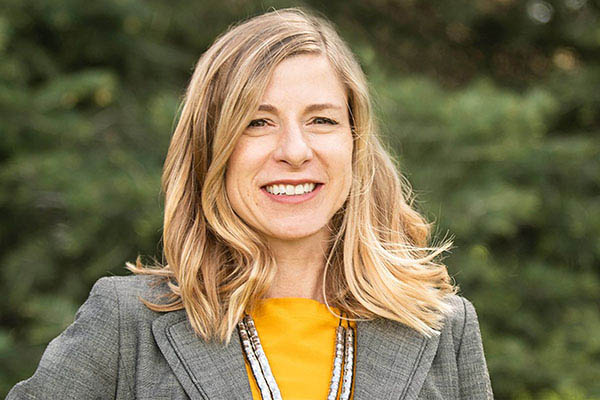
Epidemiologist Tessa Crume, PhD, MSPH
I May Have Been Exposed to COVID-19. Now What?
Tessa Crume, PhD, MSPH
(Note: ABMP connected with epidemiologist Tessa Crume, an associate professor in the Epidemiology Department at the Colorado School of Health at the University of Colorado Anschutz Medical Campus, to get her expert advice on this member’s question.)
Q: A client I saw yesterday just found out she had been exposed about three days before our appointment to someone who has now tested positive for COVID-19. My client has no symptoms yet. What should I do? Should I shut down for 14 days to make sure I don’t get any symptoms?
A: If a client has a known exposure to someone who tested positive for COVID-19, I recommend asking them the following questions: Did they spend time within 6 feet of this person for more than 15 minutes? Would they please let you know if they become sick or test positive for COVID-19 themselves?
If they answer yes, if they become symptomatic, or if they test positive for COVID-19, then assess the same factors for your interaction with them: Did you spend time within 6 feet of this client for more than 15 minutes? At any point, were you or your client not wearing a mask? If this is the case, then you should consider one of two options.
Option 1, the most conservative, is to self-quarantine for 14 days, starting from the day you were possibly exposed to them. Self-quarantine means staying at home, monitoring your health, and maintaining social distancing (at least 6 feet) for others. If you need to be around others, even in your home, wear a face mask. During this 14-day period, you should take your temperature twice per day and watch for symptoms of COVID-19.
Option 2 is to just monitor for symptoms.
Frontline workers, such as health-care professionals (HCP), are exposed to people infected with COVID-19 every day. Obviously, they aren’t in a constant cycle of self-quarantine. The Centers for Disease Control and Prevention (CDC) recommends exclusion from work based on specific exposures, which are updated as we learn more about viral transmission. Currently, the CDC recommendation is that an HCP should be excluded from work for 14 days if they were within 6 feet of a person confirmed to have COVID-19, for more than 15 minutes, during an aerosol-generating procedure AND were not wearing the recommended personal protective equipment (PPE). I doubt you performed an aerosol-generating procedure on this client, so by my judgment, if you were both wearing face coverings for the entire duration of the massage session and your client had no symptoms, you would be safe to just monitor for symptoms. However, this decision should be made based on the certainty of the exposure, your employer (if applicable), and may warrant a call to your local health department to understand local recommendations.
Q: We had a similar question from a member who is married to a frontline health-care worker. She wonders if she needs to go into a new 14-day cycle and not see clients each time her husband ends his COVID shifts.
A: Frontline professionals in the COVID-19 response and their families have experienced terrible stress and worry that they might carry the virus home to their families. Some stayed at hotels or separated themselves from their families under concern of transmission. Emotional supports are critical during this uncertain time. It is my opinion that concentrating on common-sense protective measures at work and in the home is the appropriate level of caution to protect a family from the potential exposures of a frontline worker. For the massage therapist, measures at work include:
- Wearing a face mask the entire time.
- Washing your hands before you put your mask on; don’t adjust it or touch it once it’s on your face. If you do touch it, then take it off, wash your hands, and put on a new mask.
- If you are within 6 feet of your clients, and they are not wearing a face mask or face covering, or will remove their face covering for part of the service, you should wear eye protection.
- Change out your uniform or gown after each client. Once you get home, change all of your clothes and wash them on the highest temperature allowed on the label.
author bio
Dr. Tessa Crume is an associate professor in the Epidemiology Department at the Colorado School of Health at the University of Colorado Anschutz Medical Campus. Her research focuses on the development and utilization of public health surveillance systems to understand the burden of disease. She has been an academic researcher since 2011, before which she worked for a decade as an applied epidemiologist at the state and federal level, analyzing surveillance data and evaluating public health impact. She has taught the core epidemiology class at the Colorado School of Public Health for nine years.